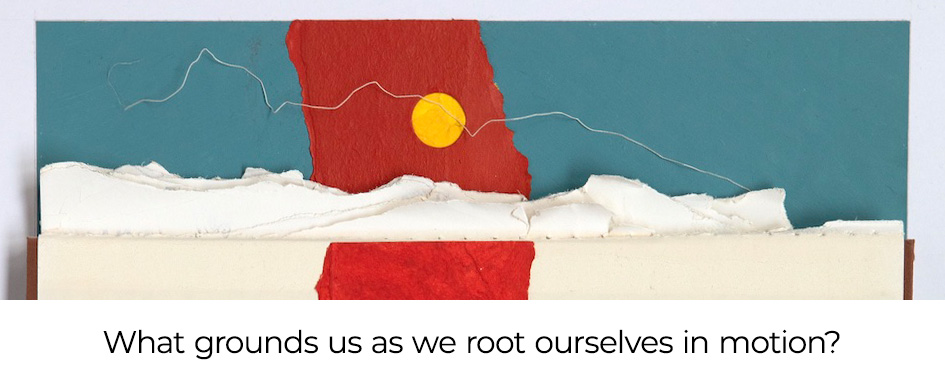Each morning begins with the gentle scrape of a pot against the stove’s surface. A ritual as steady as breath. The stove clicks, fire blooms, and the milk waits. My hands are no longer clumsy in their choreography. Cardamom pods crack between my fingers. The cinnamon stick, sun-warmed wood, splinters into the pot. Ginger’s sharp grated, pressed, squeezed zest brings the heat. This is the steam-laden memory of my mother’s kitchen, a silent hymn to connection.
Chai belongs to the soil and sun, the hands that pluck tea leaves as tender as eyelids. In 1835, British colonizers stole tea from China, smuggling Camellia sinensis seeds into India. Their empire had grown addicted, and addiction demands supply. They claimed the land’s heart—its monsoon-fed hills, its people’s sweat—and built an industry on colonial backs. For decades, my ancestors rejected tea. It was an imperial drink, bitter and foreign. It was not until the 20th century that chai, my Chai, a drink brewed with milk, sugar, and spices emerged. Chaiwalas created something wholly Indian from something stolen.We had infused the imperial with intimacy.
To make chai is to bring together a global ecosystem in a single cup. Tea leaves are the lifeblood of the shrub. The cardamom I grind into my morning pot thrives in the cool shadows of Indian rainforests. Cinnamon spirals out of Sri Lanka, where the bark of Cinnamomum trees are peeled with care. Milk flows from cows whose diet and welfare shape its sweetness; ginger grows wild in the earth, a rhizome bridging soil and spice. But this ecosystem is cracking. The monocultures of industrial tea plantations drain soil and water. Workers are underpaid. Erratic rains and rising temperatures threaten the tea fields.
Steam curls from the pot like spirits departing. It kisses my face, a small baptism in the waking hours. What if the earth breathed like this? In hisses and whispers, all spice and heat, carrying the stories of its layered body.
My kitchen, like many others, has become a quiet altar. Chai asks for presence, for patience. It’s not a drink to be rushed. The setting insists upon its role: the warmth of the stovetop; the brightness of sunlight streaking through the window, where dust motes dance; the hum of a distant kettle. The ecosystem speaks through this cup, reminding me of my place within it. Not above, but within. I have the power to brew responsibly, to choose fair trade, to reduce waste, to honor the people and ecosystems behind the cup.
As I pour the chai into my mug, I notice the way the spices have settled at the bottom of the pot. The sediment clings stubbornly to the pot, and I think back to what my grandmother had once said. “चाय लचीलापन है” (“Chai is resilience”), when she told me of the blood spilled to tame the wild slopes of Darjeeling and Assam, and how tea became ours not through acquiescence but transformation. Our ancestors brewed chai like they had lived: with the quiet defiance of people who’d been told they were small, insignificant. A pinch of this, a splash of that, and suddenly the bitter leaf was unrecognizable, blooming into something richer, fuller.
The resilience she spoke of lives in the hands of chaiwalas lining India’s crowded streets. It lives in the farmers who coax life from soil that colonialism bled dry. It lives in the countless kitchens where steam rises and histories linger, carried forward with each cup. Outside, the rain begins, soft at first, then insistent, drumming against the roof. Rain, too, is resilient, though it is growing less predictable. Monsoon patterns that once came like clockwork are now erratic, lashing tea plantations one year, abandoning them the next. In Assam, where tea fields stretch like green carpets over the hills, flooding has become more frequent, choking roots with silt. Farmers speak of the changing winds, of soil that no longer holds the same promise. They are stewards of the land, but climate speaks a new language now.
I think of the choices I have yet to make. Fair trade teas, reusable strainers, composting the spent leaves and spices. These are small acts, perhaps too small, but they are gestures of care. My grandmother would have called them सेवा, or “service.” To serve the earth, to serve others, even in the smallest ways, is to honor the gift of chai.
Chai is never just tea. It is soil and sweat, the struggle for land and dignity, the collision of cultures. It is the warmth of hospitality and the sharp edge of survival. It is mine, yet not mine alone.
Tomorrow, the pot will scrape against the stove again. The fire will bloom, and the milk will wait. Chai will teach me, as it always does, that resilience is not passive. Each cup is a conversation, and I am still learning how to listen.
I wrote Chai is Resilience for my Ecological Literature class, but it started in the kitchen where I have been making chai the same way my grandmother taught me. The process is familiar: crushing cardamom, grating ginger, and waiting for the milk to simmer, but it never feels routine. Each cup carries layers of memory and history, from my family’s traditions to the farmers and ecosystems behind the ingredients. The theme of Careful/Care-full Collaboration fits because making chai, like writing this piece, required paying close attention. It meant acknowledging the hands and histories involved and recognizing that something as simple as a morning ritual is built on relationships between people, land, and culture. That awareness shaped my writing, asking me to slow down and listen to the stories within each step.
Bibliography
Chawla, Bhuvan. “Postcoloniali-Tea: Tracing Tea in the 19th Century ެގ ާސާލުޚ | Moodle.UP.” Uni-Potsdam.de, 2024, https://moodle2.uni-potsdam.de/course/info.php?id=40122&lang=dv. Accessed 22 Nov. 2024.
Downs, Alex. “All the Tea (Not) in China: The Story of How India Became a Tea-Drinking Nation.” Serious Eats, 2 Oct. 2023, https://www.seriouseats.com/indian-tea-history-5221096.
Goodwin, Lindsey. “Did You Know Chai Tea Is Thousands of Years Old?” The Spruce Eats, 24 June 2022, https://www.thespruceeats.com/the-history-of-masala-chai-tea-765836.
Maharaj, Prabha. “Conversation about Chai.” Received by Zorian Chakraborty, 22 Nov. 2024.


